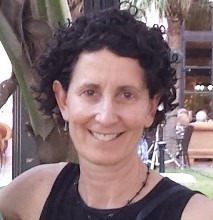Helping your breastfeeding patients succeed: Prenatal Breastfeeding Support, Delay in Lactation, and The Infant Who Won't Latch

Anne Eglash, MD, IBCLC, FABM
Dr. Eglash is a clinical professor with the University of Wisconsin School of Medicine and Public Health, in the Department of Family Medicine. In addition to practicing family medicine, she has been a board certified lactation consultant since 1994.
In 2013 she developed the Outpatient Breastfeeding Champion training program to teach breastfeeding knowledge and support to the primary care medical offices in the University of Wisconsin Medical Foundation System in Madison, Wisconsin.
Anne is a cofounder of the Academy of Breastfeeding Medicine, and is the co-medical director and cofounder of the Mothers’ Milk Bank of the Western Great Lakes.
She is the medical director of the outpatient lactation program at Meriter Hospital, and the medical director of the University of Wisconsin Lactation Services. She has published many peer-reviewed articles on breastfeeding medicine and sits on the editorial board for Breastfeeding Medicine Journal.
She co-hosts and produces a free breastfeeding medicine podcast series, The Breastfeeding Medicine Podcast, which can also be found on iTunes.
Presentation Objectives:
- Identify 3 ways that physicians can provide breastfeeding support and education for families prenatally.
- Recite 2 reasons for a delay in lactation.
- Describe 2 steps to protect breastfeeding when there is a delay in lactation.
- Identify 2 reasons why a baby may not latch soon after birth.
- Describe 2 steps that will protect breastfeeding when a baby will not latch after birth.
Upon viewing of the complete webinar lecture, please complete the post-test and application for CME credits below. CME credits will be awarded quarterly and are available until June 30, 2019.

